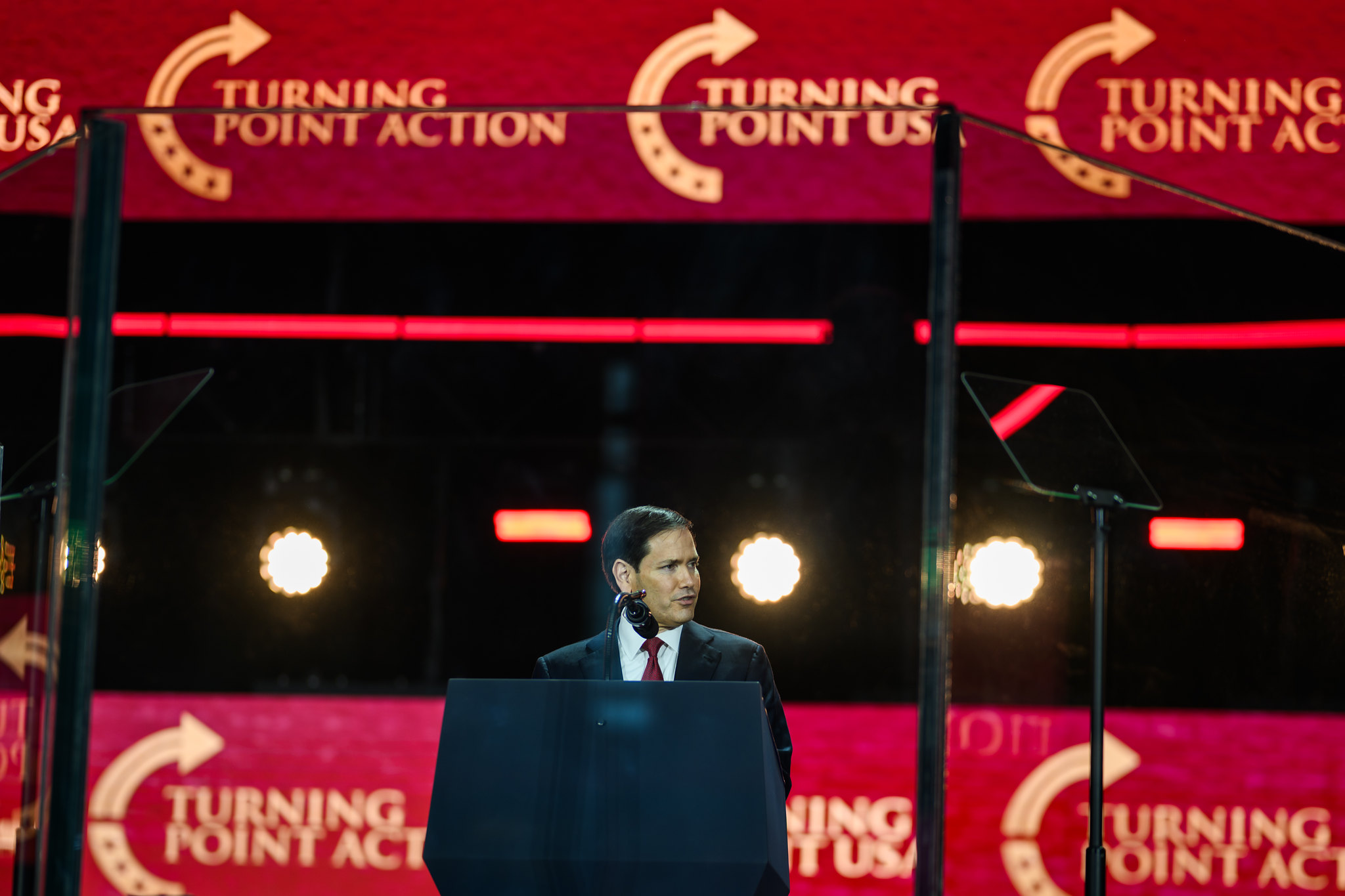At a memorial service for Charlie Kirk on September 22, 2025, prominent government officials openly shared Christian messages, emphasizing themes of sin and salvation. The event, which attracted significant attention, highlighted Kirk's influence on the Christian community and sparked discussions about the intersection of faith and politics in America.
Explainer Charlie Kirk Overview
Secretary of State Marco Rubio addressed the audience, recounting the Christian belief that humanity is separated from God by sin and can only find redemption through Christ. He stated, "Sin entered the world and separated us from our Creator... But on the third day, He rose unlike any mortal man."
Sin entered the world and separated us from our Creator... But on the third day, He rose unlike any mortal man.
Rubio's remarks were part of a broader narrative at the memorial, where several leaders articulated their Christian beliefs. Vice President J.D. Vance reflected on Kirk's impact on his own faith journey, saying, "I have talked more about Jesus Christ in the past two weeks than I have my entire time in public life. That is an undeniable legacy of the great Charlie Kirk."
I have talked more about Jesus Christ in the past two weeks than I have my entire time in public life. That is an undeniable legacy of the great Charlie Kirk.
The memorial service was not without controversy. Critics, including some media outlets, labeled the event as a manifestation of "Christian nationalism." A CNN headline suggested that the U.S. is moving toward this ideology, while former CNN host Don Lemon remarked that the leaders' use of scripture represented "religious nationalism on full display."
NPR quoted Matthew Boedy, an English professor who studies Christian nationalism, warning that labeling Kirk as a martyr could incite dangerous behaviors. He stated, "Using 'martyrdom' often rallies people to go after their enemies and to commit crusades of different types."
Supporters of the memorial argued that the expression of faith was a necessary and historical aspect of American life. They contend that the founders envisioned a nation guided by moral and religious principles. As pastor Harold Ritsau noted, the term "Christian nationalism" has been misused to discourage Christians from engaging in public discourse.
Secretary of War Pete Hegseth emphasized the spiritual dimensions of the current societal struggles, stating, "This is not a political war. It’s a spiritual war. We’re sinners, saved only by grace, in need of the gospel."
The memorial service has reignited debates about the role of Christianity in American public life, particularly in light of recent political trends. Proponents argue that the nation requires a stronger Christian presence in its governance, while critics warn against the potential implications of intertwining faith with political power.
As discussions continue, the memorial for Charlie Kirk serves as a focal point for broader conversations about faith, politics, and the future of American identity.
Why it matters
- The memorial for Charlie Kirk highlighted his significant influence on the Christian community and sparked debates on faith's role in politics.
- Prominent officials' Christian messages at the event raised concerns about the rise of Christian nationalism in America.
- Critics warn that labeling Kirk as a martyr could incite dangerous behaviors, reflecting tensions in the current political climate.
What’s next
- Ongoing discussions about the implications of intertwining faith and politics in America are expected to continue.
- Watch for potential legislative actions or public statements addressing Christian nationalism in the coming months.

